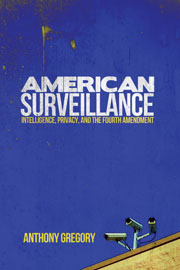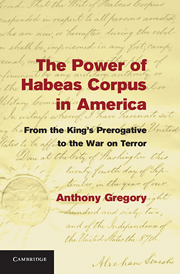In 1980 Ronald Reagan ran for president against President Jimmy Carter, and promised that if elected he would end Selective Service registration. President Carter had reinstated Selective Service registration in response to the Soviet invasion of Afghanistan, several years after President Richard Nixon had ended the draft.
Reagan condemned conscription, saying in 1979 that it “rests on the assumption that your kids belong to the state.... That assumption isn’t a new one. The Nazis thought it was a great idea.”
But once elected, Reagan kept the Selective Service intact.
In September of 2003, a Defense Department web page called for applicants to man the draft boards. After receiving negative publicity, the page disappeared. The Selective Service now states that, “notwithstanding recent stories in the news media and on the Internet, Selective Service is not getting ready to conduct a draft for the U.S. Armed Forces.”
Actually, the Selective Service is always getting ready for a draft. Its website boasts that the agency trains “over 11,000 volunteers... so that if a draft is reinstated, they will be able to fulfill their obligations fairly and equitably.” President Bush assured Americans after 9/11 that there is “not a chance” of bringing back conscription. Yet two bills have been introduced in Congress that would reinstate the draft, apply it to women as well as men, and allow no deferments for college students. Legislators Chuck Hagel (R-NE), Hillary Clinton (D-NY), and Charles Rangel (D-NY) have spoken favorably about the idea. Presidential hopeful John Kerry has vaguely called for “mandatory service” on his website, though the term “mandatory” was taken off the site after it received unwanted attention.
Some say the draft is unnecessary, but the military is desperate for bodies. With an expanding “War on Terror” and U.S. troops deployed in 140 countries, the government has already resorted to “Stop-Loss Orders”: so far more than 40,000 U.S. military personnel in Iraq and Afghanistan, in spite of their wishes, have had their contracts extended, in some cases beyond the year 2030 (i.e. indefinitely), as reported in The Washington Post last December. The Army has recently announced that troops heading to Iraq and Afghanistan will stay longer than previously anticipated. If all this is seen as necessary, total conscription may be closer than many people think.
Even some antiwar folks want to reinstate the draft, either to make military service more “equitable” or to make Americans less favorable toward war. But Vietnam had plenty of privileged draft dodgers, as well as tens of thousands of American casualties, in spite of the supposed equity and deterring impact of conscription. Unlike in the Vietnam era, present-day Canada would not be an asylum for draft resisters. In December of 2001, with little attention from the media, Bush signed a “smart borders” agreement with Canada to allow the U.S. government to extradite American draftees in Canada back to the United States. If Bush says there is “not a chance” a draft will come to America, why did he think it necessary to make such an unprecedented agreement with Canada?
The draft has a history of brutal enforcement in America.
During the Civil War, President Abraham Lincoln drafted hundreds of thousands of men and ruthlessly suppressed a violent draft protest and riot in New York City, sending troops and killing hundreds—a savage spectacle graphically portrayed in the 2002 movie, Gangs of New York.
During World War I, President Woodrow Wilson drafted 2,800,000 young men into the armed services, jailed draft protesters, and locked up conscientious objectors in military prisons such as Fort Leavenworth, where many died of pneumonia.
During World War II, President Franklin Roosevelt forced ten million conscripts into battle and incarcerated 6,000 conscientious objectors.
The draft remained in a limited scope after World War II and saw its full-scale rejuvenation with the Korean and Vietnam Wars. Draft resisters escaped during those wars, but with Bush’s “smart borders” agreement with Canada, escape may prove more difficult this time around.
The bottom line is that mandatory service is anathema to a free society. It strips away the fundamental liberties—and in many cases the lives—of the same Americans that the government’s wars ostensibly defend.
The Selective Service has no purpose if the draft will never come back, and the draft has no place in the land of the free. To defend American freedom, one of the first things we should do is honor the noble promise Ronald Reagan was unable to keep, and abolish the Selective Service, destroy the agency’s records, and never let the draft rear its barbaric head again.
Honor Reagan’s Promise and Abolish the Selective Service
Anthony Gregory is a former Research Fellow at the Independent Institute and author of American Surveillance.
Civil Liberties and Human RightsDefense and Foreign PolicyFreedomLaw and LibertyPhilosophy and ReligionTerrorism and Homeland Security
Comments
Before posting, please read our Comment Policy.








